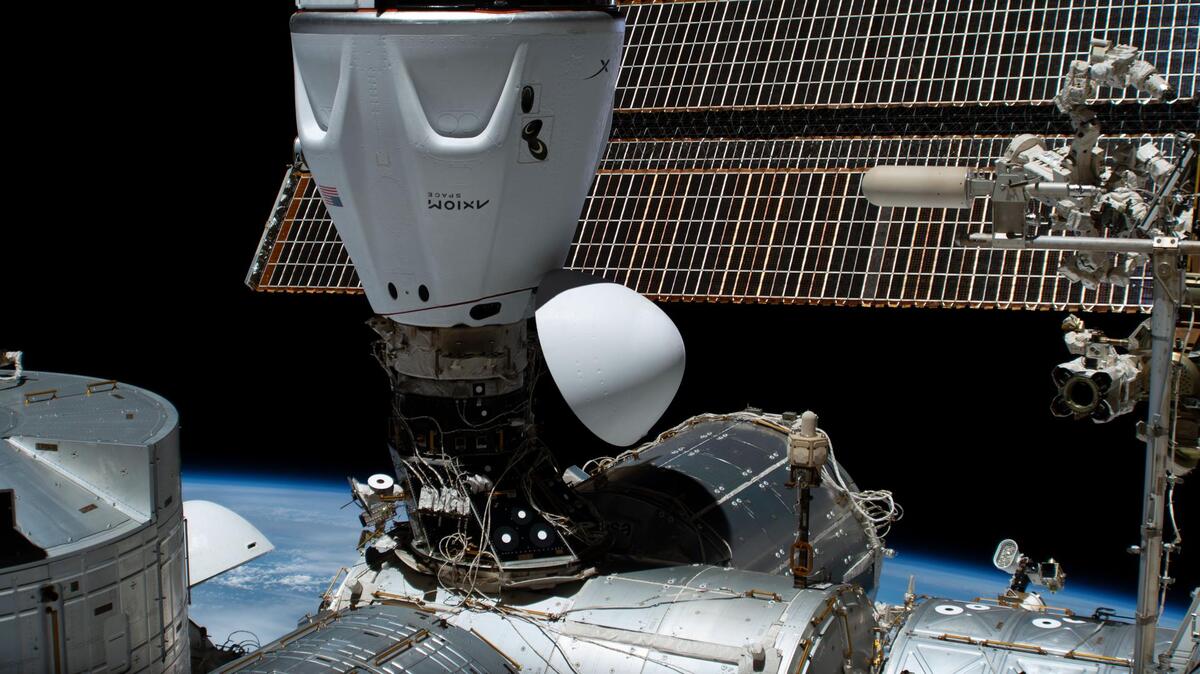NASA and Axiom Space will collaborate once again, this time signing an agreement for the fourth private astronaut mission to the International Space Station (ISS). This mission, designated as Axiom Mission 4 (Ax-4), is set to launch no earlier than August 2024 from NASA’s Kennedy Space Center in Florida.
This collaboration represents a major step in transitioning low Earth orbit activities from being primarily government-sponsored to involving multiple stakeholders, including commercial entities and private individuals.
A Transition in Space Exploration
According to Phil McAlister, the director of commercial space at NASA Headquarters in Washington, this milestone underscores NASA’s shift from being solely a government-oriented space endeavor to becoming a customer-centric entity.
McAlister expresses his satisfaction with the progress, stating, “These private astronaut missions are helping to pave the way for that transition.” NASA’s broader goal involves the development of commercial platforms that sustain a continuous American presence in low Earth orbit, extending beyond the operations of the International Space Station.
Axiom Mission 4 Details
Axiom Mission 4 (Ax-4) is anticipated to remain docked to the ISS for a duration of up to 14 days. The actual launch date hinges on various factors, including spacecraft traffic to the orbital outpost and logistical constraints.
The coordination of in-orbit activities for the private astronauts will involve collaboration between NASA, Axiom Space mission planners, station crew members, and ground-based flight controllers.
Michael Suffredini, CEO and president of Axiom Space, highlights the significance of these missions for the future of space travel. He explains that each mission contributes to the foundation laid for the world’s first commercial space station, known as Axiom Station.
These missions play a crucial role in expanding commercial space activities, enhancing access to space for individuals and nations globally, and building the necessary expertise to normalize living and working in microgravity.
Crew Selection and Training
For Ax-4, Axiom Space will submit a list of four proposed crew members to NASA and its international partners for review. Once approved, these prime crew members will undergo rigorous training in collaboration with NASA, international partners, and SpaceX, the launch provider responsible for transportation to and from the International Space Station
This training encompasses comprehensive familiarity with spacecraft systems, procedures, and emergency protocols specific to the Dragon spacecraft.
Collaboration and Reimbursable Agreements
Axiom Space is leveraging both mission-specific orders and reimbursable Space Act Agreements to obtain NASA’s services for the mission. The mission-specific order covers essentials such as crew supplies, cargo delivery to space, storage, and in-orbit resources for daily operations.
This order also accounts for up to seven contingency days aboard the space station. These services are priced according to NASA’s guidelines for capabilities exceeding the space station’s baseline offerings.
Furthermore, the order outlines potential capabilities that NASA can derive from Axiom Space, including the return of scientific samples requiring cold storage and other cargo-related functions. The private astronaut mission commander’s time may also be allocated for NASA science or agency-related tasks.
Through the Space Act Agreements, Axiom Space will reimburse NASA for various mission-enabling services. These include crew member training and the utilization of facilities at NASA’s Johnson Space Center in Houston and the Kennedy Space Center in Florida. Additionally, SpaceX has its own reimbursable agreements with NASA Kennedy for launch services.
ISS – Progress of Private Astronaut Missions
Axiom Space was selected by NASA for both the third and fourth private astronaut missions based on proposals submitted in response to the September 2022 NASA Research Announcement.
The selection process evaluated the provider’s ability to execute successful missions, NASA’s capacity to support the proposed endeavors, and the overall contribution of these missions to the agency’s objective of commercializing low Earth orbit activities.
Paving the Way for Future Exploration
For over two decades, NASA has maintained an unbroken U.S. human presence in low Earth orbit. The agency’s strategy now centers on fostering a competitive low Earth orbit marketplace where NASA is just one of several customers.
By doing so, this approach enables the private sector to take the lead, providing necessary services at a reduced cost. This shift allows NASA to concentrate on its ambitious Artemis missions, aiming for lunar exploration and eventual missions to Mars.
All the while, low Earth orbit continues to serve as an essential training and testing ground for these deep space endeavors.
You may also be interested in: Northrop Grumman launch marks 10 Years of ISS resupply missions 03-08-2023

